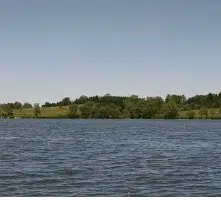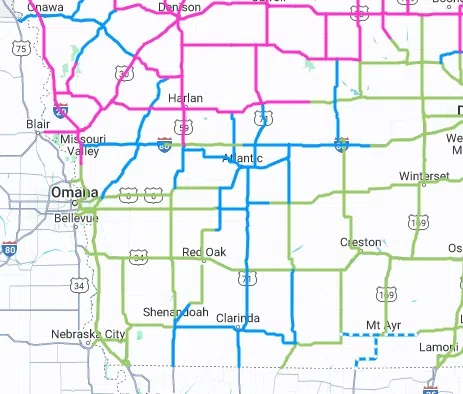(Des Moines) Iowa senators advanced a proposal Wednesday that would amend the state constitution to replace a natural resources trust fund with one that would provide property tax relief, that is, if it were funded.
Opponents of Senate Joint Resolution 6 said it would harm Iowa’s conservation efforts and outdoor recreation opportunities, while proponents said it would stop the state from buying land from farmers.
Iowans approved a constitutional amendment in 2010 to create the natural resources and outdoor recreation trust fund, which the resolution seeks to repeal. Per the original language, the trust fund would have been annually credited with three-eighths of one percent of increased sales tax on personal property and labor.
No such increase has occurred, and therefore despite its 15 years on the books, the trust has had no allocations or expenditures.
Opponents of SJR 6 asked legislators to instead fund the original trust, which was created with an intent to “protect and enhance” the natural resources in Iowa including state parks, trails, wild habitat and the conservation of agricultural soil.
Sen. Art Staed, D-Cedar Rapids, said the proposed constitutional amendment “undermines the will of the people” and he “strongly” opposed its passage.
Staed said he hears from constituents each year who want to see the trust funded, “and every year we fall short.”
“Iowans have spoken again, and they’ve asked for a future where our land, water are protected, not just for today, but for generations to come,” Staed said. “By funding the trust we invest, not only in our beauty of Iowa, but also in its economic vitality.”
Sen. Mike Bousselot, who chaired the subcommittee, repeated that the resolution does not take any existing funding away from clean water or conservation work in the state.
“What it would do is allow Iowa voters the opportunity to weigh in on where revenue from the next sales tax increase should go,” Bousselot said.
Someone in the crowded hearing room shouted “they already did,” referencing the more than 60% of Iowa voters who approved the fund in 2010.
Bousselot said Iowa is larger than it was 10 years ago, yet has been able to keep tax burdens down, as compared to surrounding states, while still investing in water, trails, parks and conservation, without the use of the fund.
“When people say ‘fund the trust’ what they’re saying is, raise your sales tax,” Bousselot said. “Increasing the tax burden on Iowans, increasing the cost of living in an affordable state, would be … more problematic for our growth than anything else.”
Several opponents of SJR 6 said they also see the fund as an important way to keep outdoor opportunities available in the state, which would in turn keep young Iowans from moving away.
“Natural resources and outdoor recreation trust fund is not just a ballot measure from 2010, it is a vision for a sustainable and prosperous Iowa in the future, a vision we must make a reality,” Staed said during the subcommittee hearing.
Amber Markham, director of external affairs and climate with The Nature Conservancy in Iowa, said the interest of herself and farmers “are aligned” despite the conflict around proposed constitutional amendment.
“This bill pits farmers against conservationists when we all know that we are one in the same,” Markham said.
Blake White, a farmer from Appanoose County, said the farmers are “not the bad guys” in this fight, but that he is constantly thinking about and pushing for conservation on his land. Yet, he said he has had first-hand experience with the state buying land that was formerly in his family.
“I am in constant competition with the state of Iowa … to purchase property,” White said. “That is not right.”
Other farmers in attendance, almost all wearing Farm Bureau pins on their lapels, shared similar stories of a pasture or a field near their land that they no longer have access to because the state has bought it.
Since the natural resource fund has never been funded, it has not aided in the acquisition of state land, but could be used for that purpose if the tax were increased and money put in the fund.
According to the Iowa Department of Natural Resources, the State of Iowa owns around 400,000 acres of land. Results from last the U.S. Department of Agriculture census show Iowa has 30 million acres of farmland.
Farmers also shared that increases to property taxes have made it more difficult for them to invest in the conservation practices they want to support on their land.
Sen. Jesse Green, R-Boone, said while he has heard much from his constituents about water quality and conservation, property tax is “a real problem” that needs to be addressed.
The proposed constitutional amendment would use the same three-eighths of a percent model on a tax increase to give property tax relief to Iowans.
“If we have a tax increase, that tax increase should also go to offset the tax burden paid by Iowans on the property tax side of the ledger,” Bousselot said in closing before advancing the proposed amendment.
If the resolution is adopted, it will be published and referred to the next General Assembly in 2027 or 2028 before it can appear on a ballot to be voted on by Iowans.













